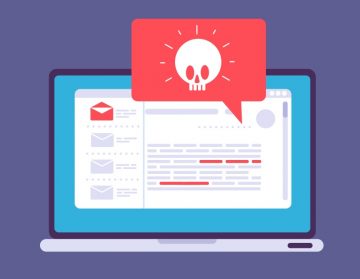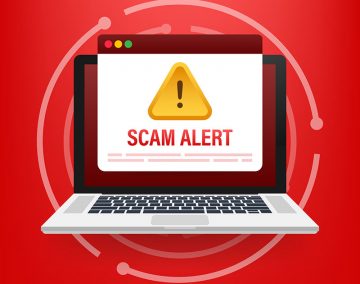Incoming Mail Notification Email Scam
Upon examination of the email in question, it has become apparent that the content of this email is the product of scammers aiming to trick recipients into disclosing sensitive information, a tactic commonly known as phishing. Recipients are strongly advised to exercise caution and refrain from interacting or responding to such deceptive communications.
This phishing email employs a misleading subject line, "Message Failure Delivery Notice," to create a sense of urgency and concern. Falsely claiming to be a message failure delivery notice from the "Mail Delivery Subsystem" associated with an email service provider, the email endeavors to convince the recipient that there are pending messages undelivered to their inbox, attributing this issue to a purported system delay. To address this fabricated problem, the recipient is urged to take immediate action by clicking the "Release To Inbox" link.
In an effort to appear trustworthy, the email asserts that it has been scanned and deemed safe, potentially to alleviate any suspicions the recipient might have. However, this is a common tactic used by phishing emails to manipulate users into engaging with deceptive content.
Clicking on the provided link redirects the user to a phishing website designed to resemble the appearance of the email service provider associated with the recipient's email address. For example, if the recipient uses Gmail, the resulting page will closely resemble Gmail's login interface.
The primary goal of this phishing page is to extract the login credentials for the recipient's email account. Scammers utilize stolen email account login details to gain access to and eventually control over the victim's email account. Subsequently, they may exploit the compromised account for various malicious activities, including theft of information, unauthorized access to other linked accounts, and the dissemination of phishing scams or malware to the victim's contacts.
How Can You Recognize a Phishing or Scam Email?
Recognizing phishing or scam emails is crucial to protecting yourself from online threats. Here are some common signs that can help you identify potentially malicious emails:
Unusual Sender Email Address:
Check the sender's email address. Be wary if it looks suspicious, misspelled, or if the domain doesn't match the official website of the organization.
Watch out for email addresses with extra characters, numbers, or slight variations designed to mimic legitimate addresses.
Generic Greetings:
Phishing emails often use generic greetings like "Dear Customer" or "Dear User" instead of addressing you by your name.
Legitimate organizations usually use your name in their communications.
Urgent or Threatening Language:
Be cautious of emails that create a sense of urgency or fear, such as threatening to close your account if you don't act immediately.
Phishing emails often use urgent language to pressure recipients into taking quick actions without thinking.
Spelling and Grammar Errors:
Poor spelling and grammar can be indicators of a phishing attempt. Legitimate organizations typically maintain a high standard of communication.
Unexpected Attachments or Links:
Avoid opening unexpected attachments or clicking on links in emails, especially if you weren't expecting them.
Hover over links to preview the URL before clicking to ensure they lead to legitimate websites.
Requests for Personal Information:
Legitimate organizations won't ask you to provide sensitive information, such as passwords or credit card details, via email.
Be skeptical of emails requesting personal information and verify the request through official channels.







